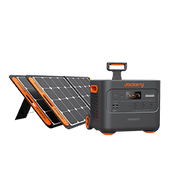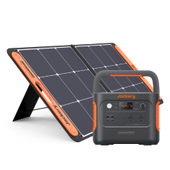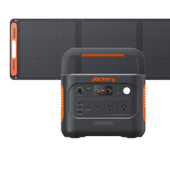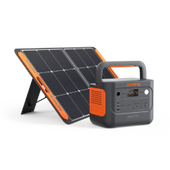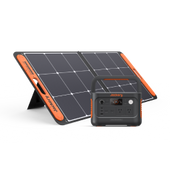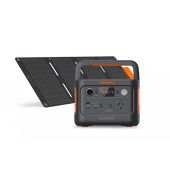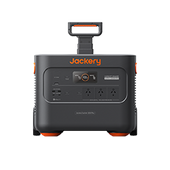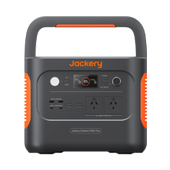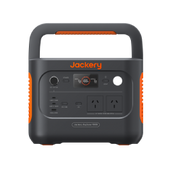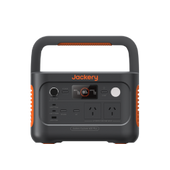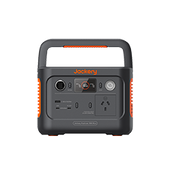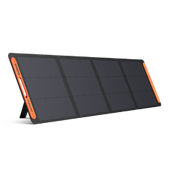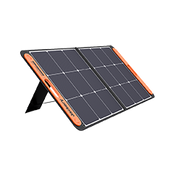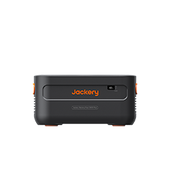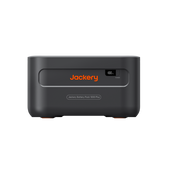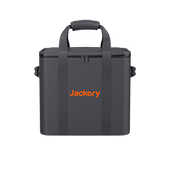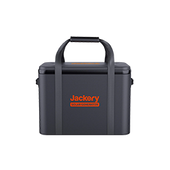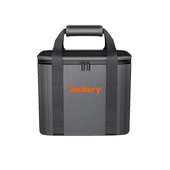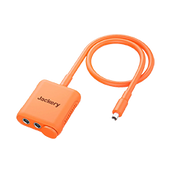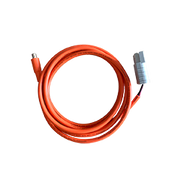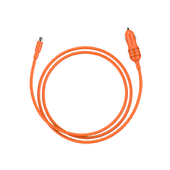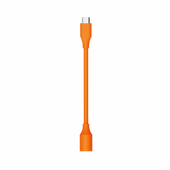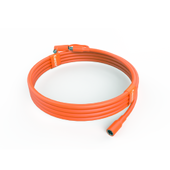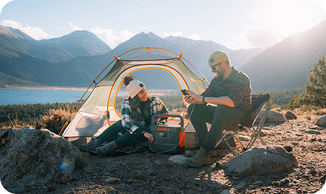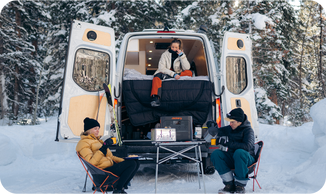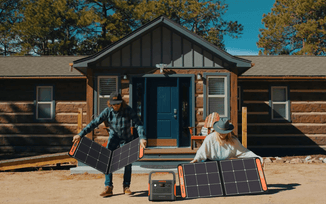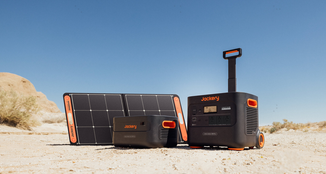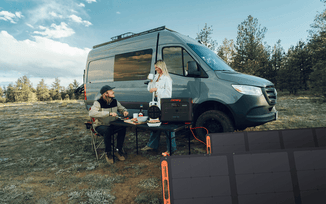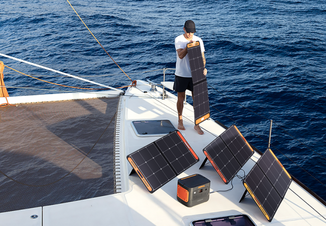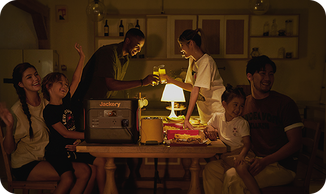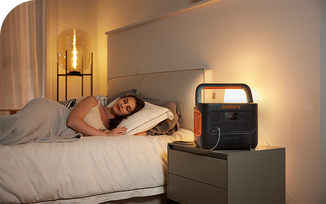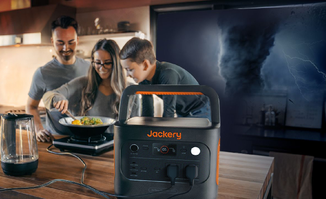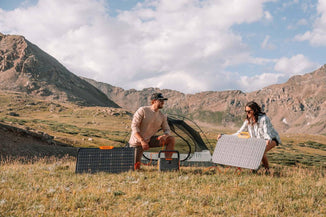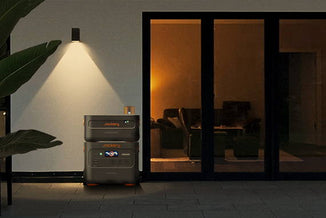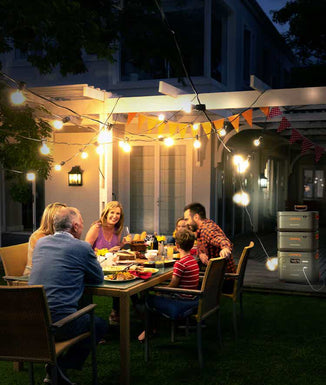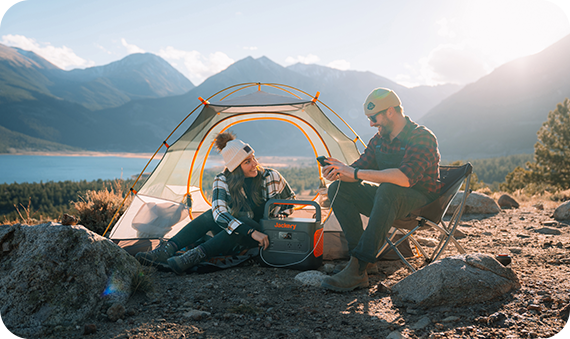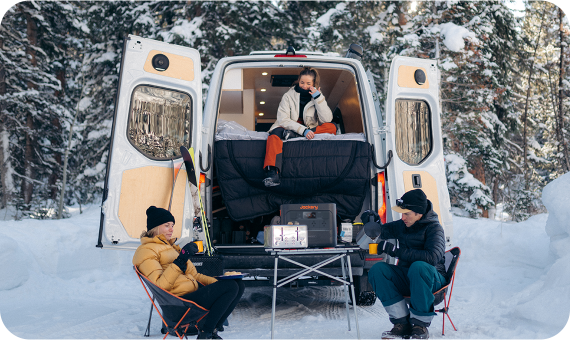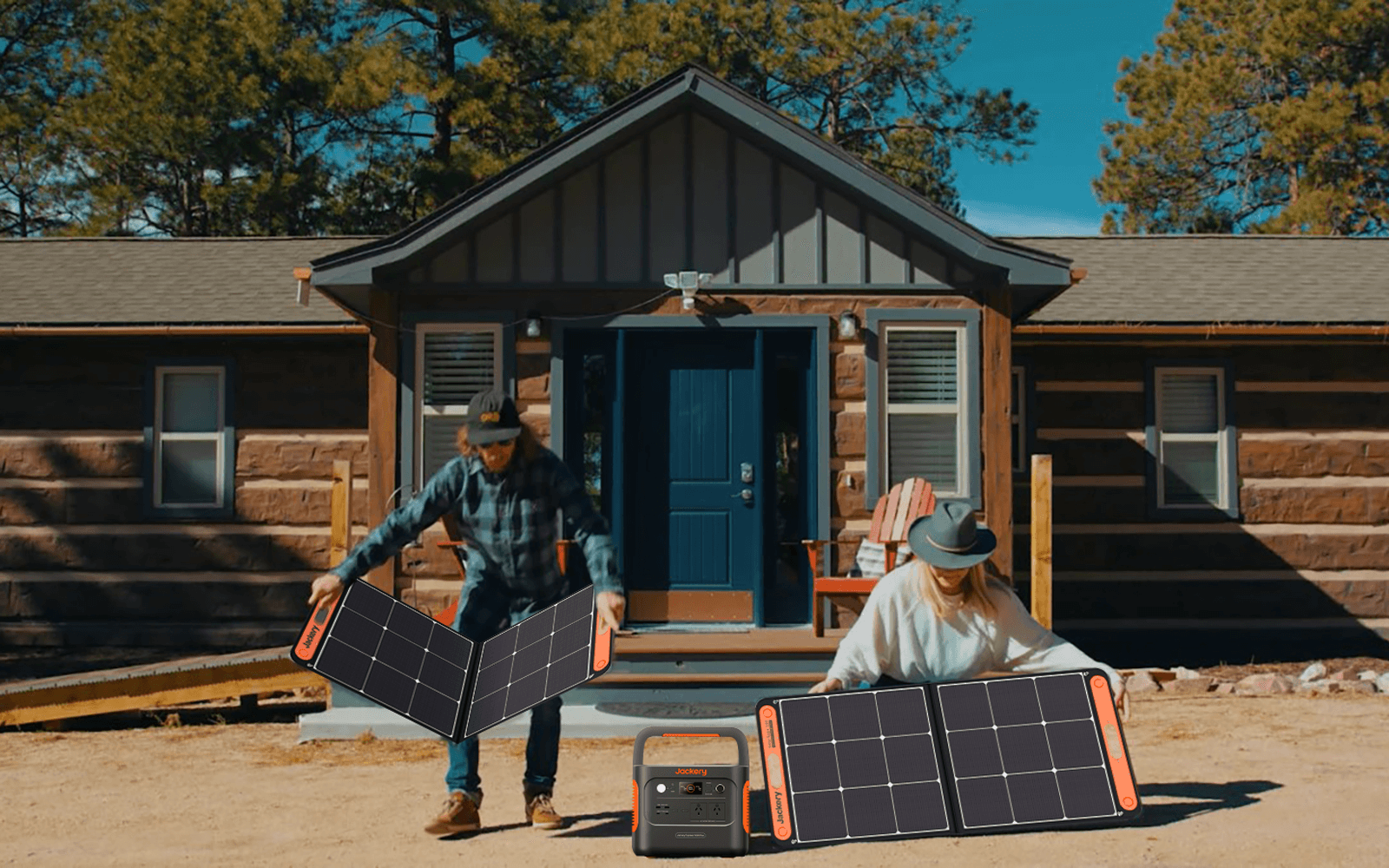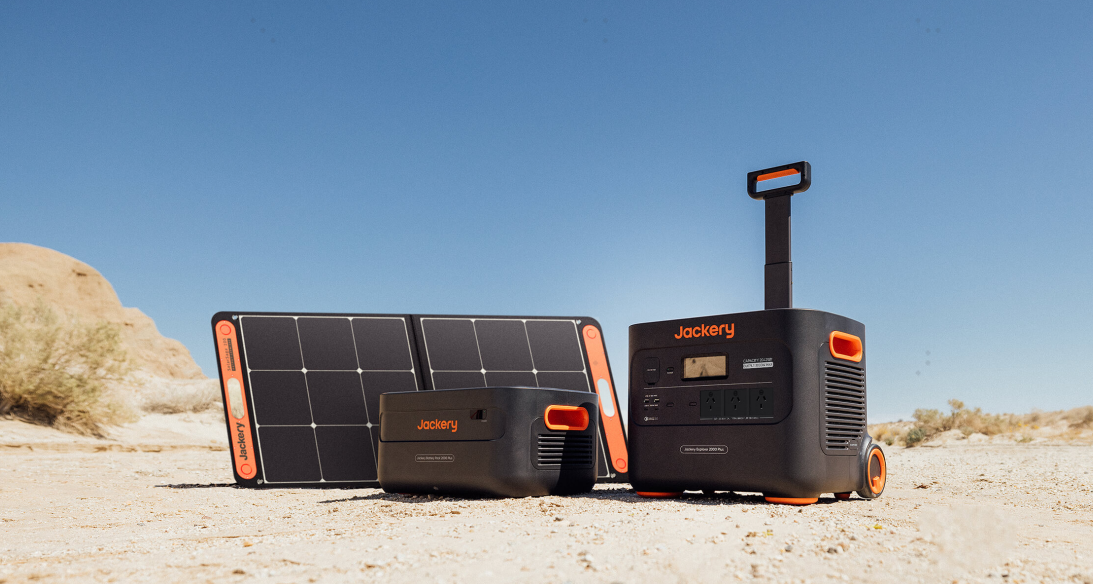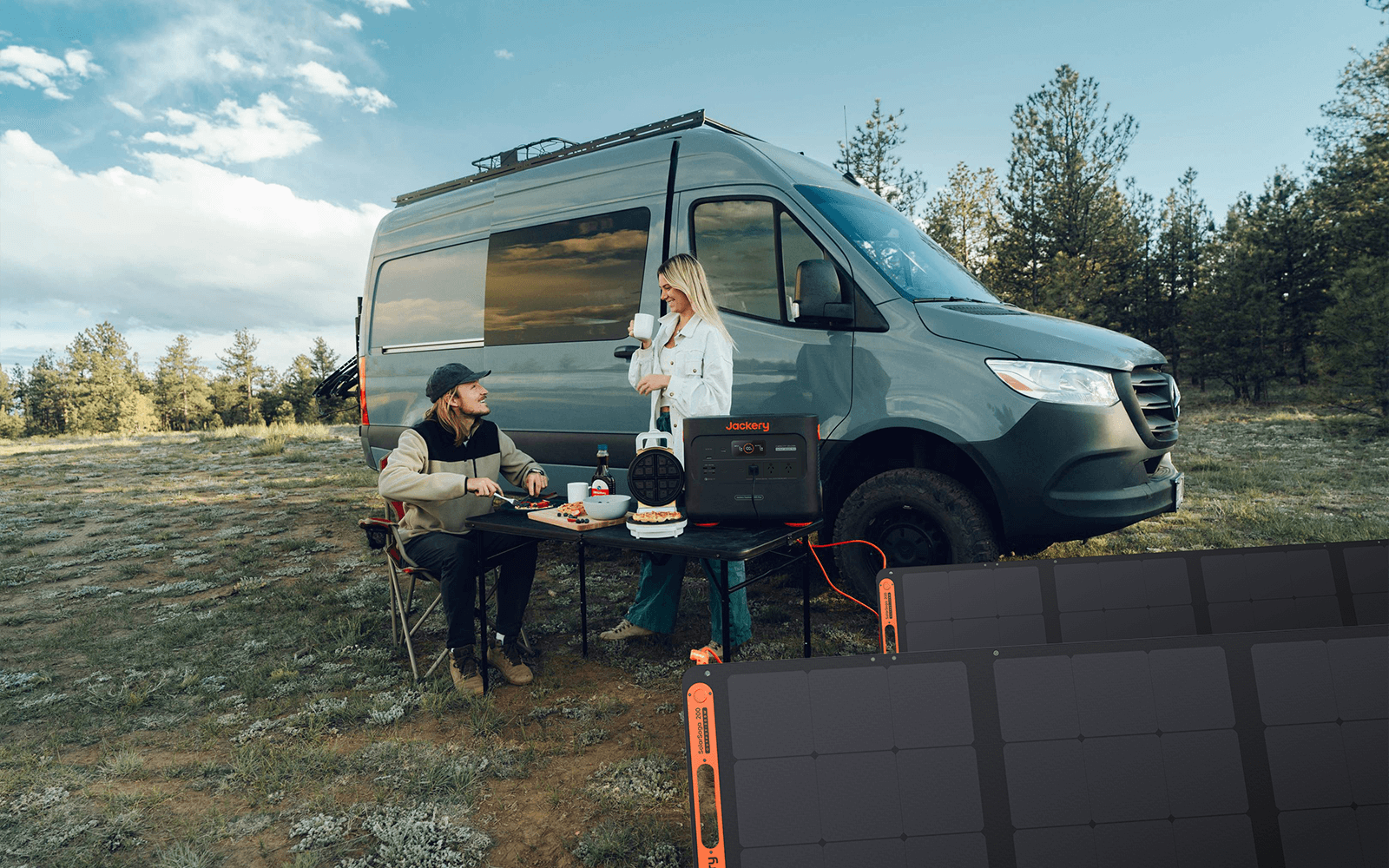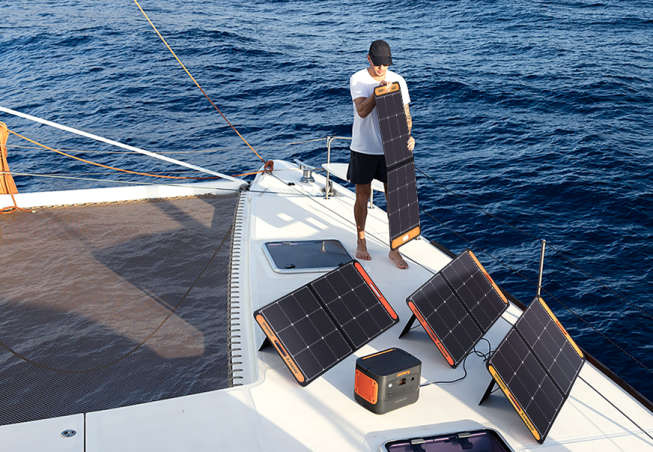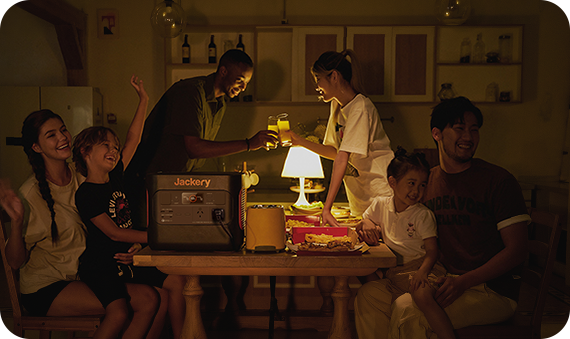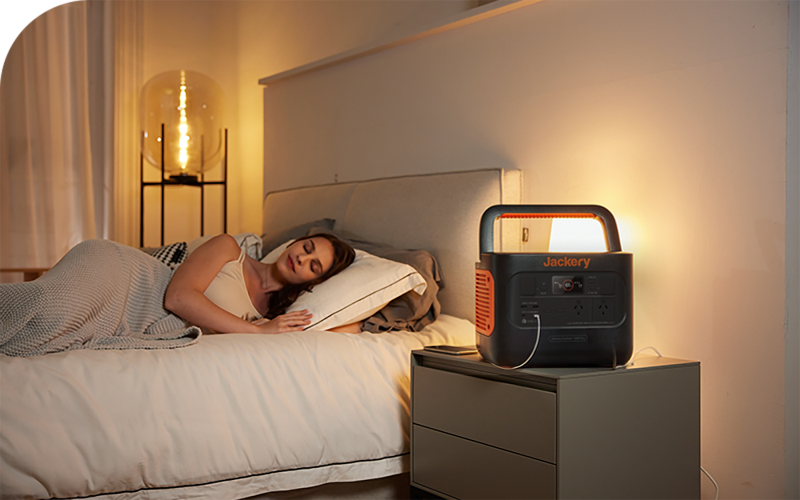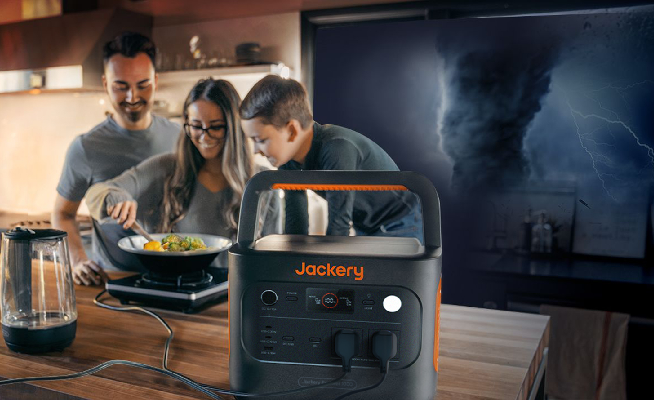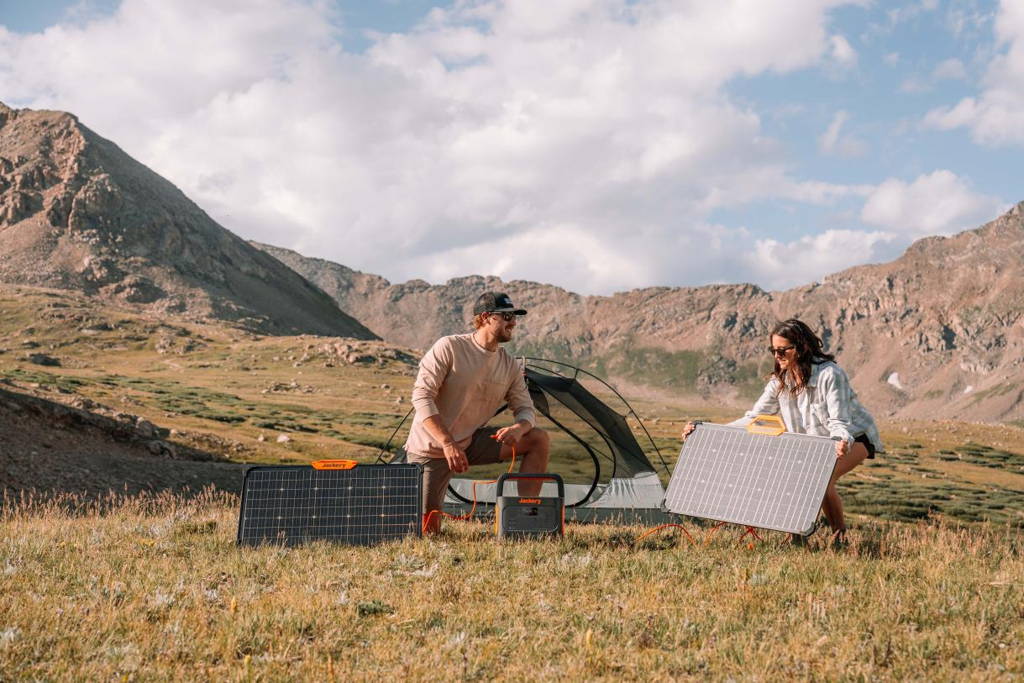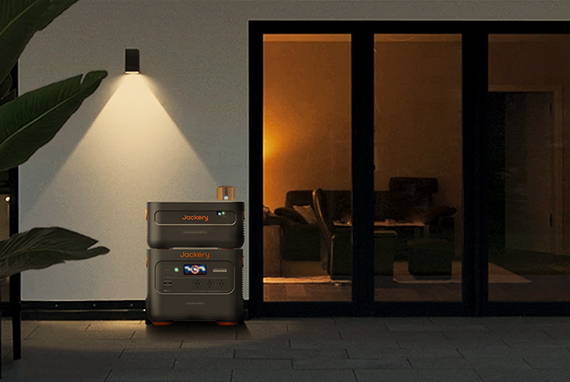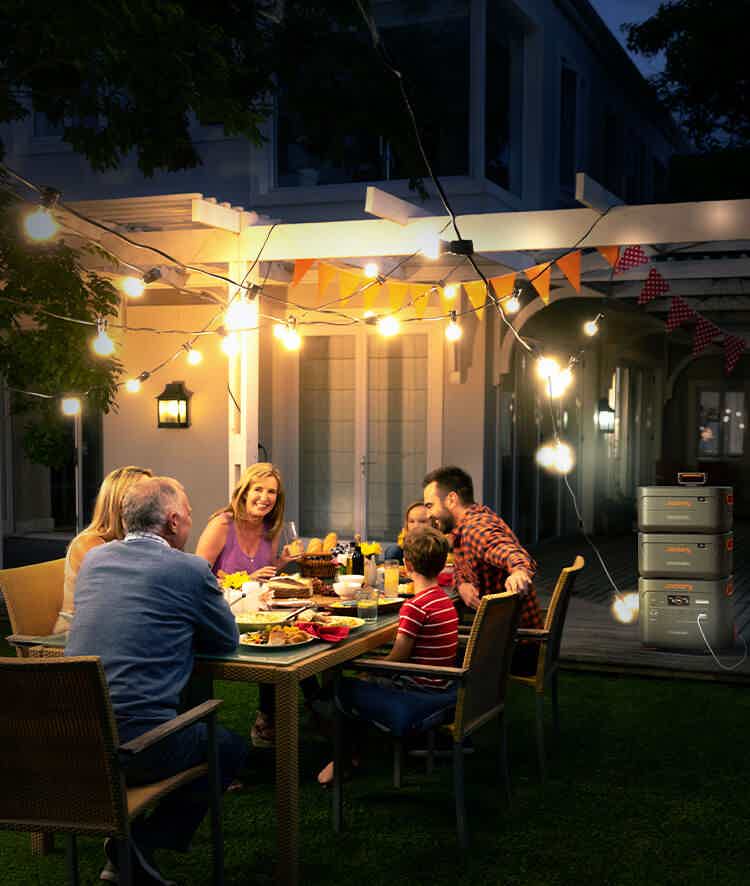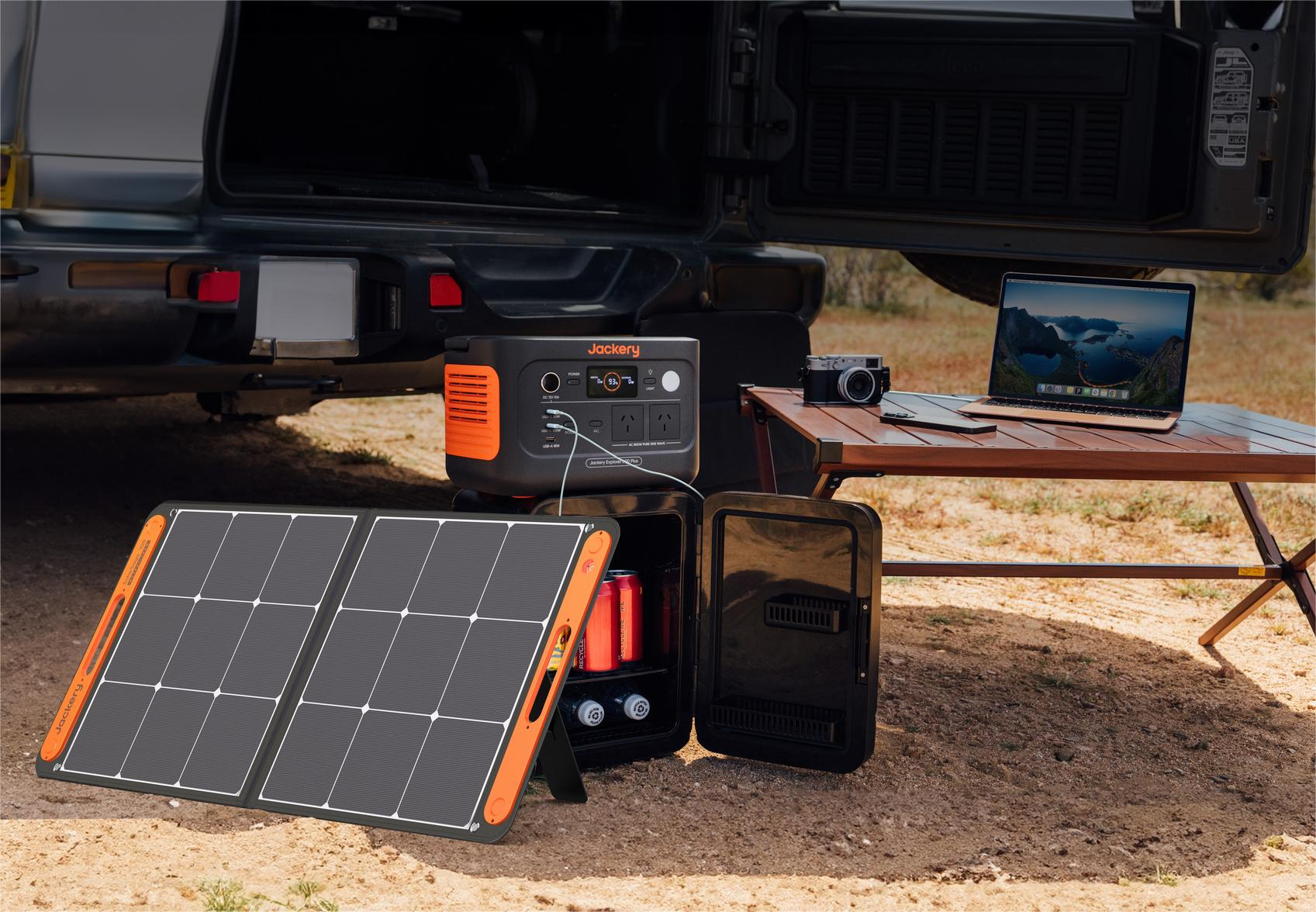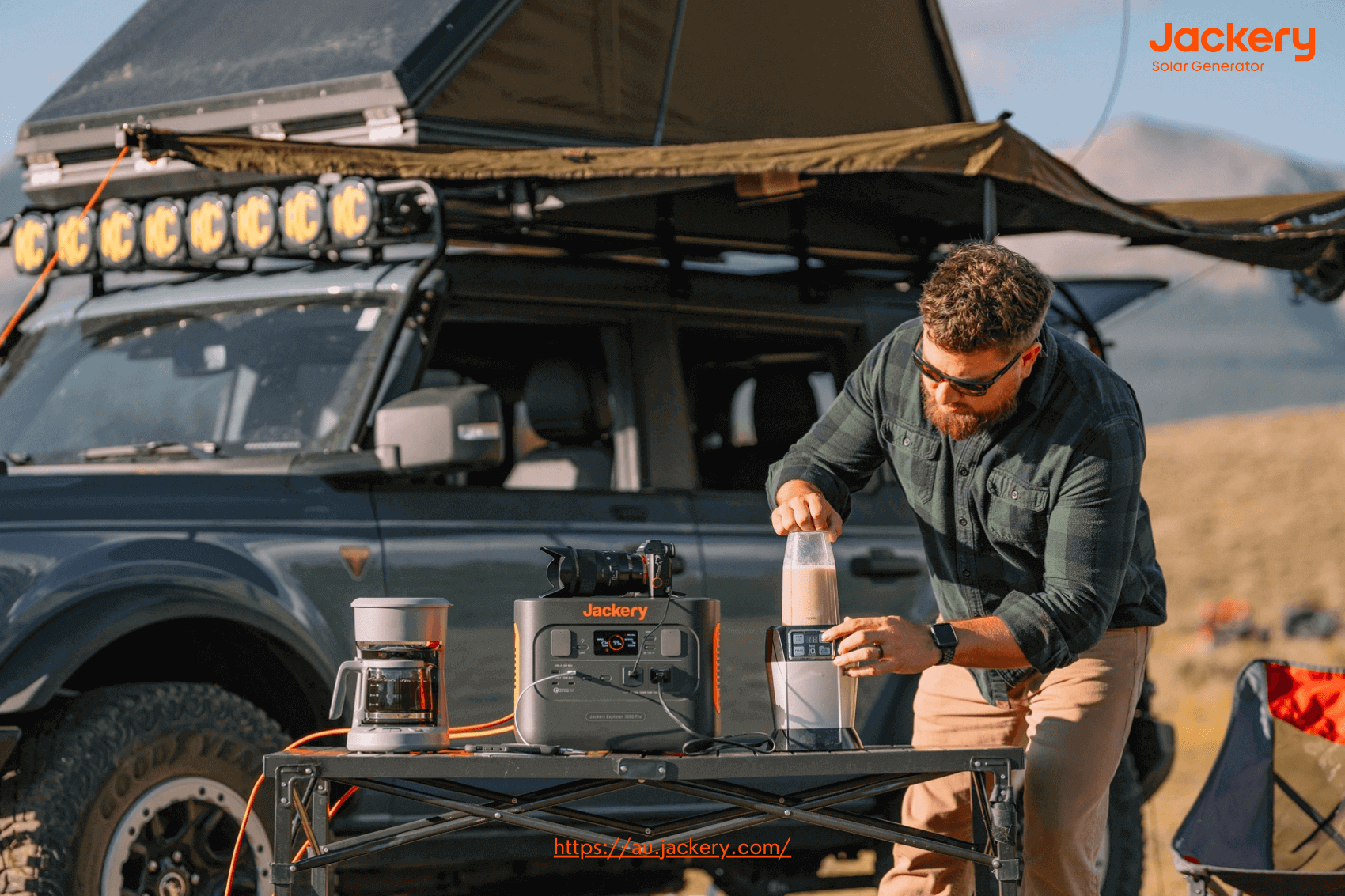CPAP Equipment and Camping
Let's have a closer look at what a CPAP machine is and its different components.
1) Components of CPAP Equipment
A CPAP machine is a medical device that helps individuals suffering from sleep-related breathing problems. They maintain a steady flow of air to keep the airways open while the patient sleeps. The basic setup includes three essential parts: the main machine, a mask that fits over the nose or mouth, and flexible tubing that connects the two.
The machine works by creating the air pressure needed to keep the airways functional. However, all this functionality hinges on one key factor: reliable electricity. The moment electricity goes off, these machines will stop working, resulting in immediate chaos.
2) Challenges of Obtaining Electricity in Camping Environments
As you step out into the camping environment, you will realise that finding a reliable source of electricity in the wild is not an easy job.
Some organised campsites do offer electrical hookups, but most of them do not. Even in campsites with power, reliability is a big concern. Unpredictable weather, power outages, or limited access to shared outlets can leave you scrambling for alternatives.
And if your preference is more adventurous, like going to remote locations for camping, finding electricity becomes a herculean task.
Understanding Power for CPAP Machines
CPAP machines were originally developed to be used in homes only where you have reliable access to AC power.
Some modern portable CPAP models do come with an internal or external rechargeable CPAP battery. While this is helpful, these batteries are always designed to keep the machine running during short-term power outages or if you lose power unexpectedly. They are not meant to sustain the machine for prolonged periods like a full outdoor camping adventure.
So the question arises: how can you power your CPAP machine while on a camping trip?
How to Power a CPAP Machine While Camping
Here are three options to do so:
A. Choose a Campsite with Electricity
Opting for a campsite that offers electrical hookups is the simplest solution for many people. The biggest advantage of this solution is convenience, as these situations usually make you feel that you have never left the comfort of your home.
However, there are a lot of downsides to following this path. First, not every campsite offers electrical access. If you enjoy camping far from the usual spots, this solution won’t be available. The second and most scary disadvantage is the possibility of a power outage at the campsite, which can catch you off guard.
This approach will also disturb your itinerary as you will be forced to skip the most beautiful camping destinations that are usually present at far-off locations with no reliable electricity.
B. Use Built-in Batteries
Some portable CPAP for camping machines come with built-in rechargeable batteries or can be paired with external battery packs. This option gives you the freedom to explore remote areas.
However, using rechargeable CPAP battery solutions also comes with some drawbacks. The biggest issue here is the CPAP battery capacity. At most, you can use these batteries for one or two nights, which will extremely limit your outdoor trip.
In fact, if you use small batteries, they can even drain in some hours and leave you in big trouble.
C. Solar Generators
Solar generators offer a more flexible and reliable solution for powering your CPAP machine while camping. They will act as your CPAP battery solutions to your machines for multiple nights without needing to be recharged.
Even during cloudy or rainy days, these CPAP batteries for camping can keep you afloat, thanks to their massive battery capacities.
The biggest advantage of solar battery packs for CPAP machines is that you can charge them wherever you are, and they will keep powering your machines. Even during nonideal conditions, good solar generators can generate enough electricity to help you power the CPAP machine.
However, the biggest challenge here is selecting the right solar generator. As a matter of fact, not all the models are powerful enough to handle the energy needs of a CPAP machine.
Some manufacturers, like Jackery, use more efficient solar generators than others, which makes them a perfect choice for powering the CPAP battery.
Integrating Solar Generators with CPAPs
Various Applications of Solar Generators in Camping Activities
Apart from powering CPAP machines, solar generators can also be used to run a wide range of other electronic appliances needed on a camping trip.
For instance, you can charge your phone, power portable lights, and even run small appliances like camping stoves or coolers. This multifunctionality is what makes solar generators such a valuable asset for campers who want to stay off the grid while still enjoying the comforts of electricity.
In more remote locations, where access to any form of electricity is scarce, the solar generator becomes your lifeline and makes your camping experience free from any worries.
Advice on Choosing the Right Solar Generator for CPAP Equipment
Choosing the right solar generator to power your CPAP machine requires some careful consideration.
Some of the most important things you need to consider include:
Good Capacity
You will want a CPAP battery generator with at least enough capacity to power your CPAP for an entire night. A good starting point is a generator with a minimum of 500 watt-hours of capacity, but this can vary depending on your machine’s power requirements and pressure settings.
Power Output
Next, do not forget to consider wattage output. The generator needs to provide enough power to run your CPAP continuously without interruptions. Most CPAP machines will list their power consumption on the label, so check those numbers and compare them with the output rating of the generator.
Recharging Times
Recharging time is yet another important factor to consider. Since solar generators rely on sunlight to replenish their energy, you will need a generator that can fully recharge and store power during the day. It can help you power CPAP machines irrespective of temperature and weather.
Portability
Lastly, always try to get a lightweight and portable generator. Since you will be carrying the generator with you to different campsites, a balance between weight, size, and power is essential.
Jackery Portable Solar Generators
Jackery portable solar generators are enough to run your CPAP machines as well as the other electricity items on your outdoor trips.
Let's have a look at two of these powerful CPAP battery generators.
Jackery Solar Generator 1000 Plus
The Jackery Solar Generator 1000 Plus is a highly efficient and powerful option for campers seeking a reliable energy source for longer trips.
With a 1264Wh capacity and 2000W output, this generator will easily handle nearly all devices you would bring on a camping adventure.
The fast solar charging capability of this generator is yet another key advantage of this machine. It utilises Advanced IBC Technology, which can help you charge it in just 4.5 hours with four 100W solar panels.
The Jackery Solar Generator 1000 Plus is equipped with multiple output ports, including AC outlets, USB-A, and USB-C ports, providing a total of 2000W output. This means that you can power multiple devices at the same time using this generator.
CPAP machines normally use 30 to 60 watts of power. With the 1264 Wh capacity of this generator, the CPAP machines can be powered for 20 to 40 hours. The exact time will obviously depend on your specific settings and the power consumption of your device.

Jackery Solar Generator 600 Plus
For campers looking for a more portable option without sacrificing essential power, the Jackery Solar Generator 600 Plus strikes the perfect balance. It is significantly lighter than the Jackery Solar Generator 1000 Plus, weighing just 7.3 kg (16.1 lbs).
Despite its smaller size, this generator comes with 800W output and a 632Wh capacity, which is more than sufficient for powering a CPAP machine overnight.
Using its emergency supercharging mode, the generator can charge from 0 to 100% in just 1 hour. This is particularly useful when you have limited time to recharge during daylight hours or if an unexpected weather shift reduces your solar output. Even under normal conditions, the generator can fully charge in about 1.6 hours using an AC wall outlet or 4.3 hours with two 100W solar panels.

Both of these generators share some incredible features that are hard to find anywhere else. For instance, they are made of LiFepo4 batteries that last for more than ten years and are extremely safe to use.
Similarly, these generators come with five years of warranty (3-year warranty + 2-year extended warranty if purchased from the official website), which makes them a risk-free investment. Both of them operate almost silently and never make you feel that a generator is running around you while you sleep.
FAQs about Solar Generator as CPAP Battery
There are some frequently asked questions (FAQs) about using solar generators as CPAP batteries. Let's have a look at those questions:
1. Is it possible to provide enough power to keep the CPAP running under cloudy or rainy conditions?
Yes, it is possible. Solar generators, especially high-quality models like the Jackery Solar Generators, come equipped with large battery reserves. The efficiency of Jackery solar panels is almost 23% which is far better than any other panel in the market. This efficiency means that even when the sun is not shining brightly, the CPAP battery can still be charged enough to sustain the CPAP machine in the upcoming night.
2. How long does it take for the solar panel to fully charge under ideal conditions?
In ideal sunlight conditions, the charging time depends on the number of solar panels you are using and the capacity of your generator. For instance, the Jackery Solar Generator 1000 Plus, when connected to four 100W solar panels, can be fully charged in as little as 4.5 hours. With fewer panels or under slightly less optimal sunlight, the charging time will extend. The Jackery Solar Generator 600 Plus can charge fully in around 4.3 hours with two 100W solar panels.
3. Are solar generators able to support CPAP therapy throughout the night?
Yes, solar generators can reliably power your CPAP machine throughout the night. Most CPAP machines typically use 30 to 60 watts of power per hour, depending on the model and settings. For example, the Jackery Solar Generator 1000 Plus can power a CPAP machine for approximately 20 to 40 hours on a full charge, depending on your machine’s energy consumption. The Jackery Solar Generator 600 Plus can also easily support overnight therapy, providing 10 to 20 hours of power.
4. What is the lifespan and cycle life of the solar generator and its batteries?
Solar generators like the Jackery models are built to last for a long time. Both the Jackery CPAP battery systems use LiFePO4 (Lithium Iron Phosphate) batteries, which are known for their long life and safety. These CPAP battery solutions can go through 4,000 charge cycles before their capacity begins to reduce, meaning they can be used regularly for up to 10 years or more. Always prefer LiFePo4 batteries as they are more reliable than others.
5. Is it complicated to set up and operate the solar generator?
Not at all. Solar generators are essentially plug-and-play solutions with user-friendly interfaces, which makes them simple to set up and operate. Even non-tech-savvy people can run these devices without any hassle.
Wrapping-Up
Powering your CPAP machine while camping is no longer a challenge with reliable solar generators like the Jackery Solar Generator 1000 Plus and Jackery Solar Generator 600 Plus. These devices provide long-lasting power, are easy to set up, and are built to endure the demands of outdoor adventures. With their impressive battery capacities, fast charging times, and quiet operation, you can enjoy the peace of nature without worrying about keeping your essential devices running throughout the night.

